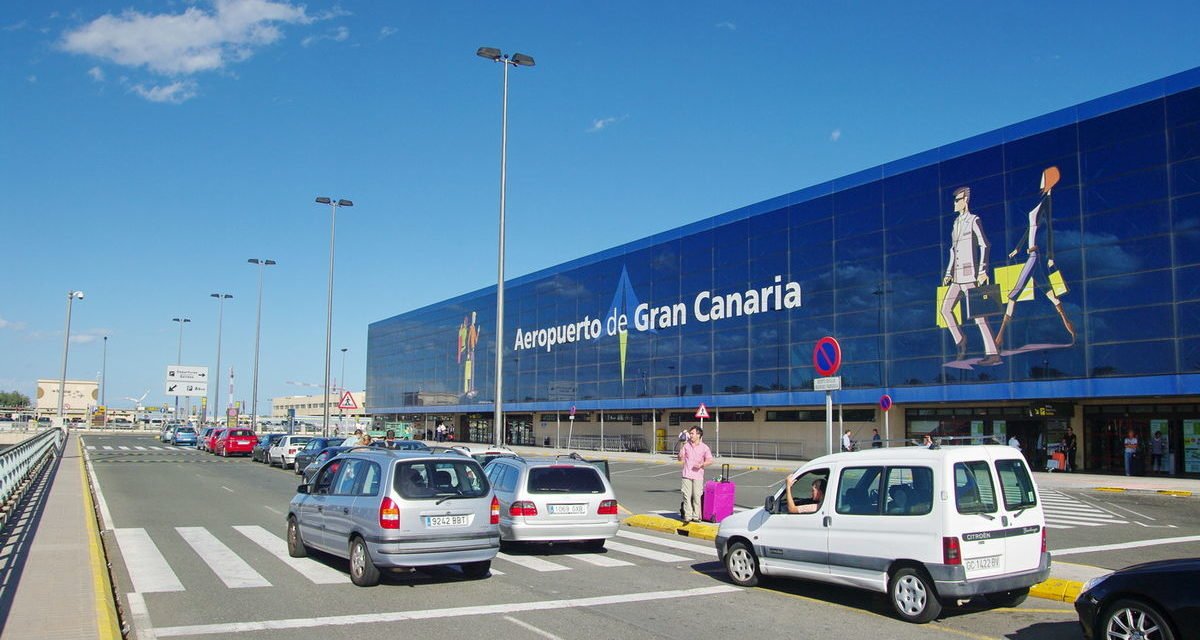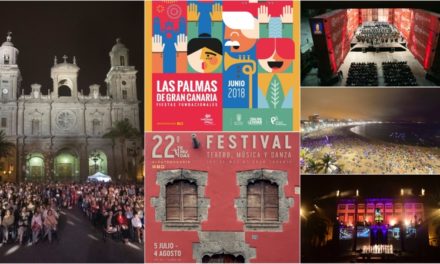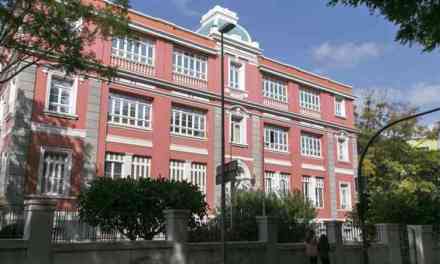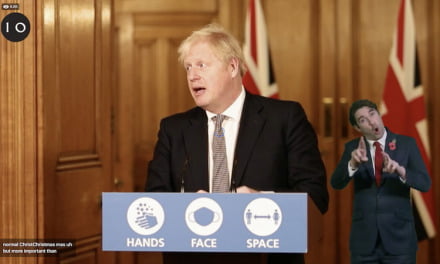 Well, it has finally happened; at 5:00 p.m. on Thursday March 5, the Gran Canaria medical authorities located, confirmed and isolated our first case of the corona virus Covid-19, part of an epidemic that has been sweeping across the world since at least the middle of December 2019. A 61-year-old woman visiting the island to see her son, from the Lombardy area of Italy. She had not been travelling alone. Three friends accompanied her.
Well, it has finally happened; at 5:00 p.m. on Thursday March 5, the Gran Canaria medical authorities located, confirmed and isolated our first case of the corona virus Covid-19, part of an epidemic that has been sweeping across the world since at least the middle of December 2019. A 61-year-old woman visiting the island to see her son, from the Lombardy area of Italy. She had not been travelling alone. Three friends accompanied her.
The Italian tourists arrived last week and had planned to return at seven o’clock on Thursday evening, headed for a Ryanair flight out of Las Palmas de Gran Canaria airport (LPA). The woman was tested having presented some symptoms, which had subsequently disappeared and so were no longer evident, but the Canarian medical professionals who attended to her managed to detect the she was a carrier of the new flu-like virus. As health officials were setting in motion set protocols to place the woman into self isolation, her three friends, who had been staying with her in the south-eastern coastal town of Arinaga, were already on their way to Gran Canaria Airport.
The three “left without saying goodbye”, said the owner of the holiday home where they had been staying. They were headed for the airport and would have boarded their Ryanair flight if it had not been for a call to the 112 emergency mainline, from one of the infected woman’s family members, informing the authorities, just in time, that there had been others travelling with her, sparking an urgent operation to locate and isolate the other three women involved.
 By 6:00 pm the Health Ministry had advised the Guardia Civil paramilitary border police and the National Police, who mobilised agents to try to locate them. The three tourists had already passed through the main security checkpoint and were waiting in the departure lounge, to board a Boeing 737 that would have taken them back to the Italian airport of Bergamo, a provincial capital, in the Lombardy region, of around half a million people, where just under half of all Italy’s nearly 5000 cases so far have been confirmed. The province rubs right up against the wider Milan metropolitan area, home to more than eight million people, and close to the epicentre of the Italian outbreak, where latest reports put the national death toll at approaching two hundred and continuing to climb.
By 6:00 pm the Health Ministry had advised the Guardia Civil paramilitary border police and the National Police, who mobilised agents to try to locate them. The three tourists had already passed through the main security checkpoint and were waiting in the departure lounge, to board a Boeing 737 that would have taken them back to the Italian airport of Bergamo, a provincial capital, in the Lombardy region, of around half a million people, where just under half of all Italy’s nearly 5000 cases so far have been confirmed. The province rubs right up against the wider Milan metropolitan area, home to more than eight million people, and close to the epicentre of the Italian outbreak, where latest reports put the national death toll at approaching two hundred and continuing to climb.
According to the Civil Guard, personnel from the Airport Security Analysis and Investigation Office (ODAISA) assisted by agents from the ÍCARO Security Detachment team (who specialise in “anomalous behaviours and
operational response”), found the three women, whose descriptions had been provided through the multilingual 112 Emergency Response and Coordination Centre. In an effort to avoid attracting the attention of their fellow passengers, the women were called over the public address speaker system and discretely monitored, once located, so that they could be guided to an isolated boarding hall, to avoid creating alarm.
There they waited for the medical services at the airport to inform the women of the situation. Their isolation officially occurred at 18.39 hours, just before their flight was due to board, and the SUC Canarian Health Service transferred them directly back to the Arinaga holiday home where they had been staying for the week, as per set protocols, so that they could self isolate from the rest of the general population, while test results confirm whether any of the others are also carriers of the virus, in the first event of its kind on the island.
The fact is that Covid-19 is now here on Gran Canaria. Though the mortality rate is pretty low, estimates have risen from the original 2% Crude Fatality Rate, with the World Health Organisation this week announcing that “Globally, about 3.4% of reported COVID-19 cases have died. By comparison, seasonal flu generally kills far fewer than 1% of those infected.” however some models suggest that number could be much higher, even if you take into account the suspected huge amount of unreported cases, the potential for this illness to spread and cause suffering should not be underestimated. There are already reports of shortages of hand soap and hand sanitiser, so we will need to work together, be vigilant, smart and kind to one another, and really take care.
More than 100,000 cases have been confirmed world wide, with almost three and half thousand reported deaths so far, primarily in older patients with pre-existing conditions, particularly those of a respiratory nature.
And of course we should not forget that more than 57,000 people have already fully recovered within two to three weeks of contracting the virus, leaving 41,000 current active cases, 6,000 of whom are currently deemed to be serious or critical.
These numbers are bound to rise.
As we adjust to this new reality, life on our little island is necessarily going to have to change for a while. There will be less tourists, and more fear. We have to work to combat misinformation, and do our best to stay healthy, for everyone’s sake.
To put things in perspective, no matter how unlikely, were every one of the more than 850,000 people who reside on Gran Canaria to become infected, we could reasonably expect nearly 30,000 people to die.
That number could triple if all 2.1 million living on the islands were to become infected. And that is not even counting the average monthly influx of more than a million foreign tourists to the archipelago, nearly 80 thousand of them arriving to Gran Canaria each week.
Though the infection rate is not currently expected to be anywhere near this high; if the entire 75,000 strong population of the southern tourist municipalities of Mogán and San Bartolomé de Tirajana were to be infected, we could see around two and half thousand fatalities among residents alone.
So let’s be clear. Wash your hands. Educate yourself.
Look after yourself and your neighbours.If you feel fever, or even the symptoms of a cold, coming on, DO NOT go to hospital or to a health clinic. Isolate yourself away from others and call the government provided help line number below, to ask for advice.
In cases of emergency call 112
(they speak your language and can send help)Canarian Health Minister Teresa Cruz this week reached an agreement with the Official Colleges of Doctors, Nurses and Pharmacists in the provinces of Las Palmas and Santa Cruz de Tenerife on restrictions on members travelling to or taking part in scientific meetings in risk areas or with persons from these areas in the coming months. Meanwhile, the Canarian Health Service has informed all staff of the need to limit meetings and events in an effort to contain the virus and prevent it from spreading among health care personnel. The instructions do not include routine activities.
Information numbers
The Canarian Department of Health has set up a free telephone number (900 112 061) staffed by a team of nurses coordinated by the Canary Islands’ Emergency Services (SUC) to deal with requests from the general public for information on prevention measures and contagion possibilities and to clarify misconceptions relating to the virus.
The public are reminded that it is important that anyone who feels they might have corona virus related symptoms (coughing, sore throat, fever, shortness of breath) and who has travelled from a risk zone in the last 14 days, or may have had contact with someone from a risk zone, should phone 112. They should not go directly to a health centre or hospital A&E. The phone number will be used to arrange home testing if required. However, the public are urged to make rational use of the facility and only if they meet the aforementioned conditions.
More than 2305 calls have been received since the services were put in place, between calls to the emergency 112 number and calls for information on corona virus related matters to the main freephone information line on 900 112 061.
We all need to work together to limit the spread as effectively as possible. We need to avoid blame, and look for ways to protect each other from infection.
Start today. Do not wait. Do not panic.
Think and act on good advice from official sources. We will do what we can to keep you informed.
Good luck.
Eddie














I AM DUE TO GO TO GRAN CANARIA IN APRIL 16Th. WILL IT BE SAFE TO TRAVEL. I HAVE 1 WEEKS HOLIDAY BOOKED IN PLAYA DEL INGLES